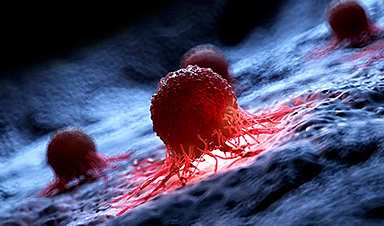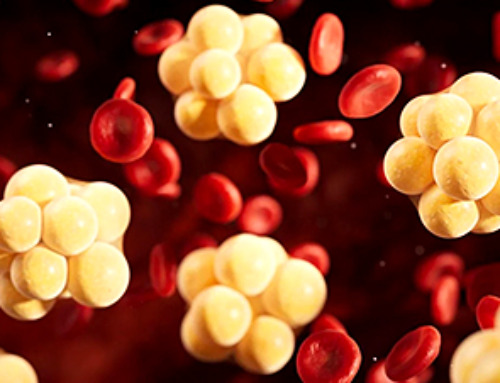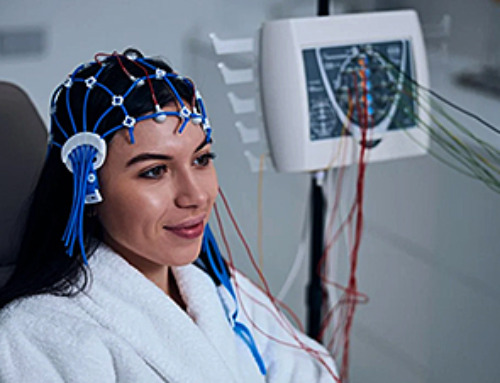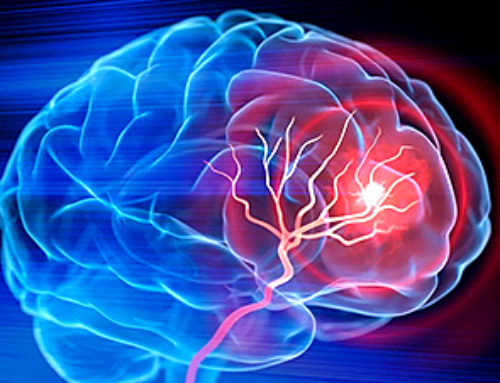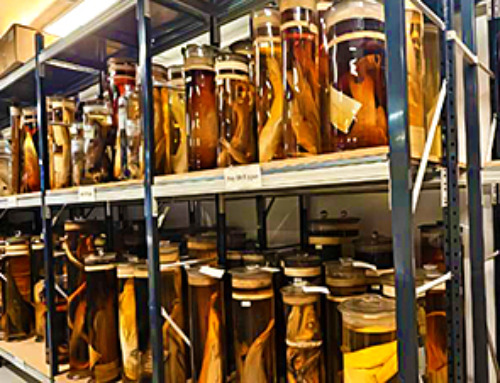Researchers discovered peptides that permanently block a key cancer protein once thought untreatable, using a new screening method to test their effectiveness inside cells.
For the first time, scientists have identified promising drug candidates that irreversibly bind to a notoriously "undruggable" cancer protein, effectively and permanently disabling it.
Transcription factors, proteins that act as master regulators of gene expression, play a critical role in cancer development. Despite years of effort, designing small-molecule drugs to block these proteins has proven largely ineffective. As a result, researchers have recently turned their attention to peptides, short chains of amino acids, as a potential solution for targeting these elusive proteins.
Now, a team from the University of Bath has developed a breakthrough method to discover peptides that can selectively and irreversibly bind to transcription factors inside cells. Using this approach, they have successfully blocked a key cancer-driving transcription factor known as cJun, marking a significant step forward in targeting previously untreatable cancer mechanisms.
The team, publishing in the journal Advanced Science, used a new drug discovery screening platform technology, called the Transcription Block Survival (TBS) assay, which tests a huge number of peptides to "switch off" transcription factors that drive cancer.
Their previous work identified reversible inhibitors of cJun, but this latest work builds on that by discovering peptides that bind selectively and irreversibly within cells, permanently blocking cJun action.
How the Inhibitor Works
The transcription factor cJun has two identical halves, which bind on either side of the DNA strand to alter gene expression.
It can become overactive in cancer, driving uncontrolled cell growth, so the researchers designed a peptide inhibitor that binds to one-half of cJun, stopping it from forming pairs and attaching to the DNA.
Once they had made a peptide that bound to the transcription factor, the researchers modified it to bind irreversibly.
Dr Andy Brennan, first author of the study and Research Fellow in the University of Bath's Department of Life Sciences, said: "The inhibitor works a bit like a harpoon that fires across to the target and won't let go – it grips the cJun tightly and stops it from binding to the DNA.
"We'd previously identified reversible inhibitors but this is the first time we've managed to block a transcription factor irreversibly with a peptide inhibitor."
Testing and Screening with the TBS Assay
For the Transcription Block Survival assay, researchers inserted binding sites for cJun, into an essential gene in cells grown in the lab. As cJun binds to the gene, it prevents it from working and the cell dies. In contrast, if cJun is blocked by the peptide inhibitor, the gene activity is restored and the cell survives.
Jody Mason, CSO of Revolver Therapeutics and Professor of Biochemistry in the University of Bath's Department of Life Sciences, said: "Many drug candidates that are effective in vitro turn out to be toxic or don't penetrate cancer cells at all.
"However our platform screens for peptide activity directly in the cell, overcoming many common challenges faced by drugs based on small molecules or antibodies.
"The screen checks the activity of the inhibitor in a real cell environment which includes proteases and other proteins that can sometimes interfere with peptide activity, whilst also checking toxicity.
"We hope this technology can in the future uncover other promising drug candidates for previously 'undruggable' targets."
Having proven cell permeability and activity in cancer cells, as well as target selectivity, the researchers now need to show the inhibitors work in preclinical cancer models.
Reference: "An Intracellular Peptide Library Screening Platform Identifies Irreversible Covalent Transcription Factor Inhibitors" by Andrew Brennan, Scott Lovell, Keith W Vance and Jody M Mason, 17 March 2025, Advanced Science.
DOI: 10.1002/advs.202416963
The research was partly funded by the Medical Research Council and Biotechnology and Biological Sciences Research Council.
News
New Drug Slashes Dangerous Blood Fats by Nearly 40% in First Human Trial
Scientists have found a way to fine-tune a central fat-control pathway in the liver, reducing harmful blood triglycerides while preserving beneficial cholesterol functions. When we eat, the body turns surplus calories into molecules called [...]
A Simple Brain Scan May Help Restore Movement After Paralysis
A brain cap and smart algorithms may one day help paralyzed patients turn thought into movement—no surgery required. People with spinal cord injuries often experience partial or complete loss of movement in their arms [...]
Plant Discovery Could Transform How Medicines Are Made
Scientists have uncovered an unexpected way plants make powerful chemicals, revealing hidden biological connections that could transform how medicines are discovered and produced. Plants produce protective chemicals called alkaloids as part of their natural [...]
Scientists Develop IV Therapy That Repairs the Brain After Stroke
New nanomaterial passes the blood-brain barrier to reduce damaging inflammation after the most common form of stroke. When someone experiences a stroke, doctors must quickly restore blood flow to the brain to prevent death. [...]
Analyzing Darwin’s specimens without opening 200-year-old jars
Scientists have successfully analyzed Charles Darwin's original specimens from his HMS Beagle voyage (1831 to 1836) to the Galapagos Islands. Remarkably, the specimens have been analyzed without opening their 200-year-old preservation jars. Examining 46 [...]
Scientists discover natural ‘brake’ that could stop harmful inflammation
Researchers at University College London (UCL) have uncovered a key mechanism that helps the body switch off inflammation—a breakthrough that could lead to new treatments for chronic diseases affecting millions worldwide. Inflammation is the [...]
A Forgotten Molecule Could Revive Failing Antifungal Drugs and Save Millions of Lives
Scientists have uncovered a way to make existing antifungal drugs work again against deadly, drug-resistant fungi. Fungal infections claim millions of lives worldwide each year, and current medical treatments are failing to keep pace. [...]
Scientists Trap Thyme’s Healing Power in Tiny Capsules
A new micro-encapsulation breakthrough could turn thyme’s powerful health benefits into safer, smarter nanodoses. Thyme extract is often praised for its wide range of health benefits, giving it a reputation as a natural medicinal [...]
Scientists Develop Spray-On Powder That Instantly Seals Life-Threatening Wounds
KAIST scientists have created a fast-acting, stable powder hemostat that stops bleeding in one second and could significantly improve survival in combat and emergency medicine. Severe blood loss remains the primary cause of death from [...]
Oceans Are Struggling To Absorb Carbon As Microplastics Flood Their Waters
New research points to an unexpected way plastic pollution may be influencing Earth’s climate system. A recent study suggests that microscopic plastic pollution is reducing the ocean’s capacity to take in carbon dioxide, a [...]
Molecular Manufacturing: The Future of Nanomedicine – New book from Frank Boehm
This book explores the revolutionary potential of atomically precise manufacturing technologies to transform global healthcare, as well as practically every other sector across society. This forward-thinking volume examines how envisaged Factory@Home systems might enable the cost-effective [...]
New Book! NanoMedical Brain/Cloud Interface – Explorations and Implications
New book from Frank Boehm, NanoappsMedical Inc Founder: This book explores the future hypothetical possibility that the cerebral cortex of the human brain might be seamlessly, safely, and securely connected with the Cloud via [...]
Global Health Care Equivalency in the Age of Nanotechnology, Nanomedicine and Artificial Intelligence
A new book by Frank Boehm, NanoappsMedical Inc. Founder. This groundbreaking volume explores the vision of a Global Health Care Equivalency (GHCE) system powered by artificial intelligence and quantum computing technologies, operating on secure [...]
Miller School Researchers Pioneer Nanovanilloid-Based Brain Cooling for Traumatic Injury
A multidisciplinary team at the University of Miami Miller School of Medicine has developed a breakthrough nanodrug platform that may prove beneficial for rapid, targeted therapeutic hypothermia after traumatic brain injury (TBI). Their work, published in ACS [...]
COVID-19 still claims more than 100,000 US lives each year
Centers for Disease Control and Prevention researchers report national estimates of 43.6 million COVID-19-associated illnesses and 101,300 deaths in the US during October 2022 to September 2023, plus 33.0 million illnesses and 100,800 deaths [...]
Nanomedicine in 2026: Experts Predict the Year Ahead
Progress in nanomedicine is almost as fast as the science is small. Over the last year, we've seen an abundance of headlines covering medical R&D at the nanoscale: polymer-coated nanoparticles targeting ovarian cancer, Albumin recruiting nanoparticles for [...]
